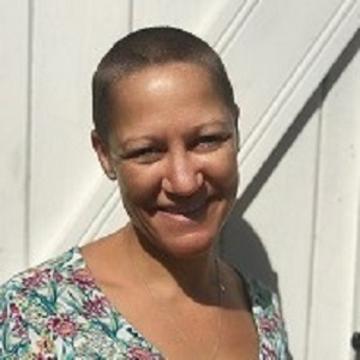Olivia Sibony, Head of Impact Investment at Seedtribe

Liv is an award-winning entrepreneur who left a career at Goldman Sachs to launch her food-tech startup, GrubClub, which she sold to Eatwith in 2017.
As an ex-founder, she was only too aware of the importance of embedding purpose into your mission, in order to make it truly impactful, while also driving a profit. She also understood the challenges entrepreneurs face in raising funds and wanted to help make this process more efficient and transparent. So she joined Angel Investment Network to launch and grow SeedTribe, a spinoff platform focused specifically on connecting “impactful” businesses with investors and stakeholders who want to play an active part in helping shape the businesses of the future.
She is also a Board member of UCL’s Fast Forward 2030, which aims to inspire the next generation of entrepreneurs to launch businesses that address the UN’s Sustainable Development Goals (SDGs).

I came from a Corporate background and never imagined myself being an entrepreneur. However, I felt the urge to solve a big problem that I didn’t see being addressed, so felt I had to try and solve this myself.
I have several ongoing projects including SeedTribe as a platform to support impactful entrepreneurs to scale. We connect them with Angel Investors through our online DIY platform. Impactful entrepreneurs pay to upload their investment pitch onto the platform and algorithm matches them with investors who have expressed an interest in the relevant industries.
I’m in the process of evolving this to the next stage. On the one hand, I’m working on a mini accelerator to help impactful entrepreneurs close their investment round as quickly as possible, so they can then get back to work and increase the positive impact they’re seeking to have in the world. I do this by bringing together cohorts of entrepreneurs at the early funding stages, where they benefit from P2P support as well as support from professionals who can make this journey easier for them.
I am also an advisory on the Global Entrepreneur Programme for the Department for International Trade (DIT). I help impactful entrepreneurs from abroad to relocate their Global HQ to the UK and scale from here. They are high-potential, high-growth entrepreneurs who’ve reached a plateau in their country of origin and feel the UK is a good place for them to scale. I help them move and then set up here, both with strategic support, introducing them to markets, finance, talent, as well as support on infrastructure, sign-posing them to ways to set up the business in the UK, including bank accounts, HMRC, tax, legal, office space, etc. This is a free service for entrepreneurs who qualify for the programme (they need to be high-growth, innovative and relevant to the UK), as it’s funded by the government
I then have a number of other hats which are side projects:
-
I’m Vice-Chair for the Mayor of London’s board for Women in Cleantech and through this, I’ve partnered with 2 board members to create a non-profit called FiveThirteen where we focus on the flow of capital towards women tackling climate change
-
I’m founding board member of FastForward 2030, a non-profit network and platform for impact entrepreneurs achieving the UN Sustainable Development Goals, supported by UCL
-
I also spend a lot of time doing speaking engagements related to impactful entrepreneurship and how we can make the impact and the start-up worlds more diverse and inclusive.
In the longer view, I’m passionate about helping them find other ways to grow, without only looking at equity funding options. I’m building a network of trusted people, systems, companies to help them form strategic partnerships, as I want to remove the dependency for impactful entrepreneurs to only have to strive to be Unicorns. I think there are other ways we can help these entrepreneurs have a bigger impact and be more sustainable (in the basic sense of long-term survival) with long-term growth that will be better for all. This includes exploring ways to encourage more patient capital, rewarding for achieving social or environmental impact and not solely financial gains, as well as enabling meaningful partnerships and collaborations between different groups.
Entrepreneurs are driven by an unstoppable passion and desire to solve a problem. They believe that the world will be better off as a result of their business and they also feel they are the best person (and team) to make this happen.
They are optimistic and tenacious.
I did some research into the current demand, key trends and size of the market. I thought through what it would take in order to grow this business and make it financially sustainable. Once I established that I was in the right place, at the right time, and had the right people to help me on this journey, I took the plunge to become an entrepreneur.
It’s a calculated risk and one needs to think about what they would be prepared to sacrifice in order to make this happen.
A deep knowledge of the sector.
Focus.
Humility coupled with the right level of confidence.
The diversity of work: no two days are the same.
The constant learning curve.
The people one meets.
The belief that one can genuinely change the world for the better.
– Anita Roddick, founder of Body Shop, has always been a huge inspiration for me, showing how you can grow a great, profitable business while championing best practice with regards to society and environment
– Oleg Fomenko, founder of SweatCoin, for his intelligence, strength, courage, determination, coupled with his openness, generosity and humility as a founder
– PinPoint Data Science for its ingenuity in addressing the enormous challenge of detecting cancer in the very early stages, while finding innovative ways to attract paying customers, with huge potential financial upside, while significantly reducing late-stage instances of cancer and saving NHS money, while improving livelihoods. Win win win.
If I had 5 minutes with Anita Roddick, I’d ask her whether she had to make compromises in terms of social and environmental sustainability vs financial sustainability and if so, how she would approach these conundrums in order to grow the business while being true to her values.
I wish I had asked for more help as a first-time entrepreneur.
I wish I’d been stronger in staying focused on solving one problem at a time.
As a first-time entrepreneur, we receive investment from Angel investors and through Crowdfunding.
Currently with the business I run, SeedTribe, it’s a spinoff business of the Angel Investment Network and it is funded by the founders of the parent company, rather than external investors.
UK R&D tax credits.
SEIS and EIS.
The emergence of inspiring groups such as Skoll or Oxford Innovation Centre, to support entrepreneurs to set up and scale their businesses.
Skoll and Oxford Innovation Centre.
Be humble and embrace all your “failure” as the most amazing learning opportunities, so you can constantly learn and improve.
Share this
More news



